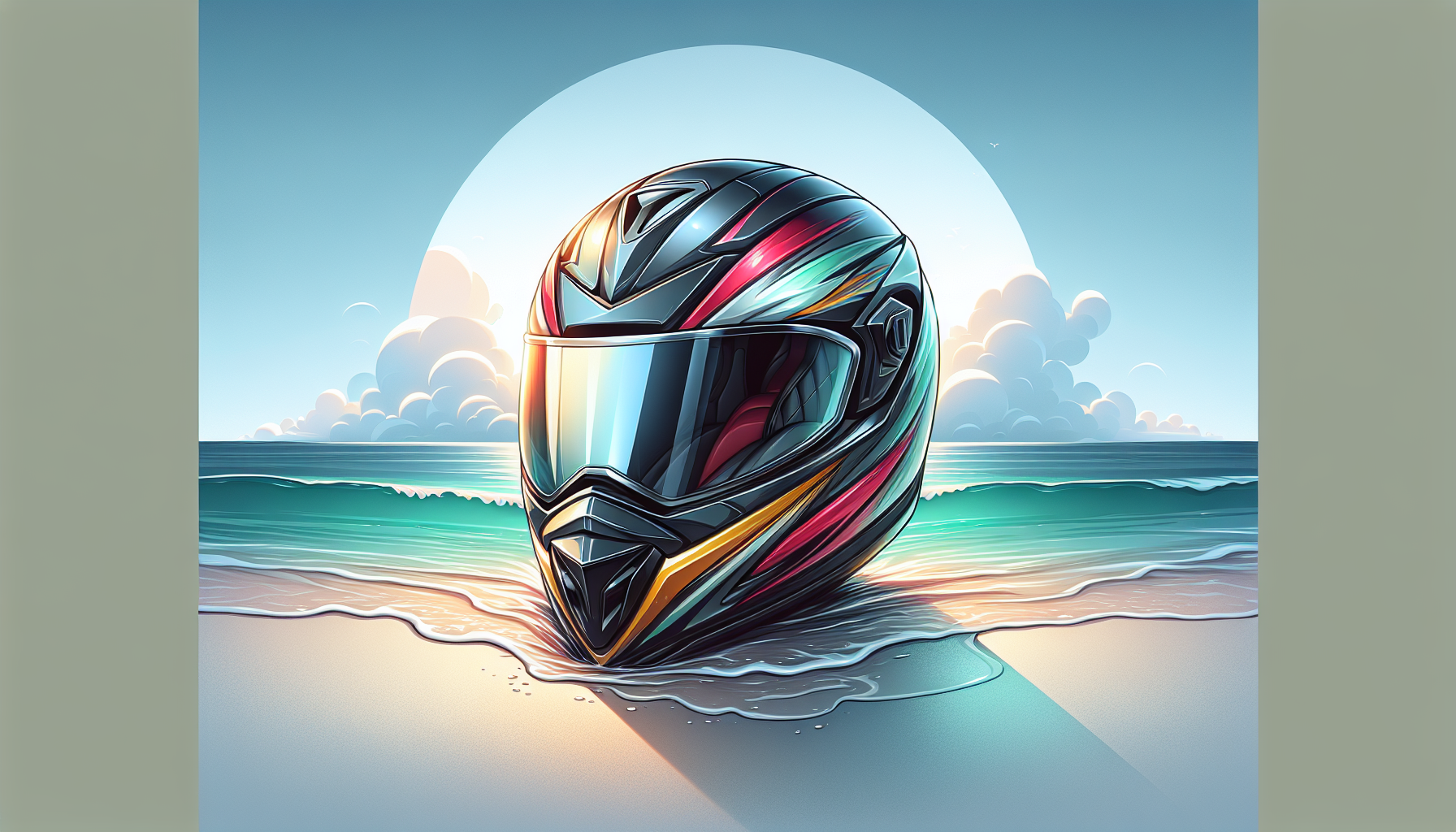What Is Classified As A PWC?

If you’re wondering what exactly is classified as a PWC, you’ve come to the right place. A PWC, or Personal Watercraft, refers to a type of watercraft that is designed to be operated by one or two persons. It’s exciting, fast, and provides an exhilarating experience out on the water. When it comes to PWCs, A2Z Powersport is the company to know. With their extensive knowledge of Jet Skis and the industry as a whole, they are the go-to destination for anyone looking to rent a PWC. Located at the Fort Morgan Marina in Orange Beach, Alabama, A2Z Powersport offers top-notch Jet Ski rentals that will surely satisfy any water enthusiast. So, whether you’re a thrill-seeker or simply craving a fun-filled day on the waves, make sure to check out A2Z Powersport for an unforgettable PWC experience.
Definition of a PWC
A personal watercraft (PWC) is a type of recreational watercraft that is designed to be operated by an individual or a small group of people. Also known as jet skis, these compact and lightweight vessels are powered by a jet propulsion system or an impeller-driven waterjet engine. PWCs are popular among water sport enthusiasts for their maneuverability, speed, and thrill factor.
Classification of personal watercraft
Personal watercraft can generally be categorized into two main types: stand-up PWCs and sit-down PWCs. Stand-up PWCs are smaller and require the rider to stand while operating the vessel, providing a more sporty and agile experience. Sit-down PWCs, on the other hand, are larger and allow the rider to sit or kneel, offering more comfort and stability.
Characteristics of a PWC
PWCs are typically characterized by their design features, including the hull design, jet propulsion system, handlebars and controls, seating arrangements, and storage compartments. These features are designed to enhance the performance, safety, and convenience of the rider. PWCs are also known for their compact size and lightweight construction, making them easy to transport and launch into the water.
Legal Classification of PWCs
As with any recreational watercraft, there are specific regulations and requirements governing the operation of PWCs to ensure safety on the water. These regulations may vary by jurisdiction, but typically cover areas such as speed limits, age restrictions, safety gear requirements, and boater education courses.
Regulations governing PWCs
The regulations governing PWCs typically focus on aspects such as no-wake zones, distance from shore, and designated waterways. These regulations are in place to minimize the impact of PWCs on the environment, as well as to ensure the safety of both PWC operators and other watercraft users.
Requirements for operating a PWC
To operate a PWC, operators are usually required to meet certain criteria, such as minimum age requirements and completion of a boater education course. Additionally, some jurisdictions may require operators to obtain a boater’s license specific to PWC operation. These requirements are put in place to promote responsible and safe PWC operation.
Popular Brands of PWCs
There are several leading manufacturers that produce high-quality PWCs known for their performance, durability, and innovation. These brands are trusted by watercraft enthusiasts around the world and offer a wide range of models to cater to different preferences and skill levels.
Leading manufacturers of PWCs
Some of the leading manufacturers in the PWC industry include Yamaha, Sea-Doo, Kawasaki, and Honda. These brands have established a reputation for producing reliable and technologically advanced PWCs that are built to last.
Varieties of PWC models
PWC models vary in terms of their features, performance capabilities, and intended use. There are models designed specifically for racing, fishing, touring, and general recreational purposes. Each model may offer different features such as enhanced stability, increased storage capacity, or specialized seating arrangements to cater to specific needs and preferences.
PWC Design Features
The design of a PWC plays a significant role in its performance, safety, and overall user experience. Several key design features contribute to the functionality and usability of PWCs.
Hull design
The hull of a PWC is specifically engineered to provide stability and maneuverability. Different hull designs, such as deep-V hulls or flat-bottomed hulls, offer varying levels of stability and agility in different water conditions. The hull design also affects the overall ride quality and comfort of the PWC.
Jet propulsion system
Unlike traditional boats that use propellers, PWCs utilize a jet propulsion system powered by an impeller-driven waterjet engine. This system draws water into the vessel and then forcefully propels it out at high speeds, creating forward thrust. The jet propulsion system allows for quick acceleration and maneuvering, making PWCs agile and responsive on the water.
Handlebars and controls
PWCs are equipped with handlebars that allow the rider to control the direction and speed of the vessel. The handlebars are typically connected to a steering nozzle that directs the water flow, enabling the rider to navigate with precision. Additional controls, such as throttle levers and braking systems, are also integrated into the handlebars for operational convenience and safety.
Seating arrangements
PWCs offer various seating arrangements to accommodate different numbers of riders. Some models are designed for solo riders, while others can accommodate two or three passengers. The seating arrangements are ergonomically designed to provide comfort and stability during operation, ensuring a pleasant experience for the riders.
Storage compartments
Most PWCs feature storage compartments that allow riders to safely stow personal belongings such as towels, sunscreen, and snacks. These compartments are designed to be watertight, keeping the contents dry and secure while out on the water. The availability and capacity of storage compartments may vary depending on the model and manufacturer.
Benefits of Owning a PWC
Owning a PWC can bring numerous benefits and advantages to water sport enthusiasts of all ages. Whether you are seeking recreational enjoyment or a thrilling adrenaline rush, a PWC can offer a unique and unforgettable experience on the water.
Recreation and entertainment
One of the primary benefits of owning a PWC is the endless recreational opportunities it provides. From cruising along scenic coastlines to engaging in high-speed water sports, a PWC opens up a world of adventure and entertainment. Whether you prefer leisurely rides or exhilarating maneuvers, a PWC offers versatility to cater to different preferences.
Versatility on various water bodies
PWCs are designed to perform well on various bodies of water, ranging from calm lakes and rivers to the open ocean. This versatility allows owners to explore different aquatic environments and embark on thrilling journeys. The compact size and agile nature of PWCs make them ideal for navigating narrow waterways and reaching secluded spots that larger watercraft may not be able to access.
Ease of use
Another advantage of owning a PWC is its user-friendly nature. PWCs are relatively easy to operate, and beginners can quickly learn the basics with minimal training. The intuitive controls and lightweight construction make them accessible to individuals of varying skill levels and physical abilities. This accessibility factor contributes to the widespread popularity of PWCs among water sport enthusiasts.
Compact and lightweight design
Compared to traditional boats, PWCs offer a compact and lightweight design, making them easier to transport and store. They can be loaded onto trailers or the back of pickup trucks, allowing owners to explore different waterways and travel to their desired destinations. Additionally, PWCs require less space for storage, making them suitable for individuals who have limited storage options.
Different Types of PWCs
PWCs come in various types to cater to the diverse needs and preferences of water sport enthusiasts. Whether you are looking for a high-performance racing experience or a relaxing fishing trip, there is a PWC model designed to meet your specific requirements.
Stand-up PWCs
Stand-up PWCs are designed for those seeking a more active and sporty experience on the water. These models require the rider to stand while operating the vessel, providing a greater sense of control and agility. Stand-up PWCs are commonly used for adrenaline-fueled activities such as freestyle riding and racing.
Sit-down PWCs
Sit-down PWCs, also known as recreational PWCs, are larger and offer more stability and comfort compared to stand-up models. These PWCs allow riders to sit or kneel during operation, providing a more relaxed and leisurely experience. Sit-down PWCs are popular choices for cruising, exploring, and general recreational use.
Three-seater PWCs
As the name suggests, three-seater PWCs can comfortably accommodate up to three passengers. These models are ideal for family outings or group adventures, allowing multiple riders to enjoy the PWC experience together. Three-seater PWCs offer additional seating space and often include features such as extended platforms and boarding ladders.
Racing PWCs
Racing PWCs are specifically designed for high-speed competitions, offering exceptional performance and maneuverability. These models prioritize speed, acceleration, and responsiveness to provide riders with an adrenaline-pumping racing experience. Racing PWCs often feature powerful engines, aerodynamic designs, and advanced suspension systems.
Fishing PWCs
Fishing PWCs are equipped with features tailored to meet the needs of anglers. These models may have specialized fishing platforms, rod holders, and live-wells to facilitate a successful fishing trip. Fishing PWCs offer the advantage of being able to access shallow or hard-to-reach fishing spots that larger fishing boats may not be able to reach.
Touring PWCs
Touring PWCs are designed for extended journeys and long-distance cruising. These models typically feature enhanced comfort, additional storage space, and fuel efficiency to accommodate multi-day trips. Touring PWCs are perfect for exploring larger bodies of water or embarking on adventures that require extended time on the water.
Safety Considerations for PWCs
Safety should always be a top priority when operating a PWC. Following proper safety practices and guidelines is crucial to ensure an enjoyable and accident-free experience on the water.
Wearing appropriate safety gear
When operating a PWC, it is essential to wear appropriate safety gear, such as personal flotation devices (PFDs) or life jackets. PFDs are designed to keep you afloat in case of an accident or unexpected entry into the water. Additionally, wearing protective clothing, such as wetsuits or drysuits, can provide insulation and protection from the elements.
Maintaining a safe speed
Adhering to speed limits and maintaining a safe speed is crucial for the safety of both the PWC operator and others on the water. Excessive speed can reduce reaction time and increase the risk of collisions or loss of control. It is important to familiarize yourself with speed regulations in your area and always operate the PWC at a speed that allows for safe maneuverability.
Alertness and awareness of surroundings
Maintaining a high level of alertness and awareness of your surroundings is key to avoiding accidents on the water. Keep a lookout for other vessels, swimmers, and potential hazards such as rocks, buoys, or shallow areas. Paying attention to your surroundings and being proactive in your navigation can help prevent collisions and ensure a safe experience.
Proper distance from other vessels
Maintaining a safe distance from other vessels is essential to avoid collisions and ensure the safety of everyone on the water. It is important to follow the rules of navigation and give other watercraft sufficient space. Be mindful of the wake created by your PWC and the impact it may have on smaller boats or individuals in the water.
Understanding local waterway rules and regulations
Before operating a PWC on any body of water, it is essential to familiarize yourself with the local waterway rules and regulations. These rules may include specific speed limits, no-wake zones, and restricted areas. By understanding and abiding by these regulations, you can help maintain a safe and harmonious environment for all watercraft users.
Licensing and Training for PWC Operators
To ensure safe and responsible operation of PWCs, certain licensing and training requirements may be in place. These requirements help PWC operators develop the necessary skills and knowledge to navigate the waterways with confidence.
Minimum age requirements
Minimum age requirements for operating a PWC vary by jurisdiction. Some jurisdictions may allow younger individuals to operate a PWC under the supervision of a licensed adult, while others may have stricter age restrictions. It is important to familiarize yourself with the minimum age requirements in your area before operating a PWC.
Boater education courses
Many jurisdictions require individuals to complete a boater education course before obtaining a boater’s license or permit. These courses provide essential information on boating safety, navigation rules, and emergency procedures. Taking a boater education course can help enhance your understanding of PWC operation and ensure a safer experience on the water.
Obtaining a boater’s license
In some areas, PWC operators may be required to obtain a boater’s license specific to PWC operation. This license is typically issued upon successful completion of a boater education course and passing a written examination. Acquiring a boater’s license demonstrates your knowledge and competence in operating a PWC safely and responsibly.
Safety courses specific to PWCs
Some organizations and educational institutions offer safety courses specifically designed for PWC operators. These courses provide additional training and practical instruction on PWC operation, maneuvering techniques, and emergency procedures. Participating in these courses can further enhance your skills and confidence as a PWC operator.
Renting a PWC
If you are not ready to commit to owning a PWC or simply want to try out different models before making a purchase, renting a PWC can be a convenient and cost-effective option.
Benefits of renting a PWC
Renting a PWC allows you to experience the thrill and enjoyment of PWC operation without the commitment of ownership. It provides the flexibility to rent different models and try out various features and performance capabilities. Renting is also a great option for occasional water sport enthusiasts who may not have enough opportunities or storage space to justify owning a PWC.
Factors to consider before renting
Before renting a PWC, there are several factors to consider to ensure a safe and enjoyable experience. Verify the age and licensing requirements imposed by the rental company and local regulations. Evaluate the rental company’s reputation and credentials to ensure they maintain their PWCs in good condition and adhere to safety standards. Additionally, familiarize yourself with the rental terms and insurance coverage provided by the company.
Finding reputable rental companies
To find reputable rental companies, it is advisable to research and read reviews from past customers. Look for companies with a solid reputation, a well-maintained fleet of PWCs, and knowledgeable staff who prioritize customer safety. Recommendations from friends, family, or local water sport enthusiasts can also help in finding reliable rental companies in your area.
Safety instructions and orientation when renting
When renting a PWC, it is crucial to pay attention to the safety instructions and orientation provided by the rental company. Listen carefully to the briefing on PWC operation, controls, and safety procedures. Familiarize yourself with the location of safety equipment and emergency contact information. Asking any questions or seeking clarification during the orientation will help ensure a safe and smooth experience on the water.
Buying a PWC
If you have decided to make a long-term commitment to water sports and want to have the convenience and freedom of owning a PWC, purchasing one may be the right choice for you. Here are some factors to consider when buying a PWC.
Researching different models and brands
Before making a purchase, it is important to research different PWC models and brands available in the market. Consider your specific needs, preferences, and skill level to determine the most suitable model for you. Look for reviews, specifications, and performance comparisons to make an informed decision. Additionally, visiting local dealerships and attending boat shows can provide hands-on experience with different models.
New vs. used PWCs
Deciding between a new or used PWC depends on your budget and personal preferences. New PWCs offer the latest features, warranties, and potentially longer lifespan. Used PWCs can be more affordable, but it is essential to thoroughly inspect the vessel, especially the engine and mechanical components, before making a purchase. Consider factors such as maintenance history, hours of use, and overall condition when buying a used PWC.
Budget considerations
When buying a PWC, it is crucial to set a budget and consider the additional costs associated with ownership. These costs may include insurance, registration fees, maintenance, storage, and accessories. It is advisable to factor in these expenses to ensure that you can comfortably afford the PWC and its ongoing upkeep.
Inspection and test drive
Before finalizing a purchase, perform a thorough inspection of the PWC to ensure it is in good working condition. Check for any signs of damage or wear, and inspect the engine, impeller, hull, and electrical systems. If possible, request a test drive to assess the performance and handling of the PWC. Take note of any unusual noises, vibrations, or handling issues that may indicate potential problems.
Understanding warranty and service options
When purchasing a new PWC, it is essential to understand the warranty coverage provided by the manufacturer. Familiarize yourself with the warranty terms, including duration and coverage limits. Additionally, inquire about the availability of authorized service centers to ensure easy access to professional maintenance and repairs as needed.
In conclusion, personal watercraft (PWCs) offer water sport enthusiasts a thrilling and versatile way to enjoy the open water. These compact and agile vessels come in various types and models, each designed with specific features to cater to different needs and preferences. Whether you are interested in racing, fishing, touring, or general recreational activities, there is a PWC that can fulfill your desires.
While operating a PWC, it is essential to prioritize safety by wearing appropriate gear, maintaining a safe speed, and exercising alertness and awareness. Understanding local regulations and obtaining the necessary licensing and training can further enhance your safety on the water. Renting a PWC can be a convenient option for those who want to experience the enjoyment without the long-term commitment of ownership. However, if you are ready to make a purchase, thorough research, inspection, and consideration of budget and warranty options are crucial.
So whether you choose to rent or buy, owning a PWC opens up a world of adventure, recreation, and unforgettable memories on the water. So why wait? Dive into the excitement of PWCs and get ready to embark on your aquatic journey.








